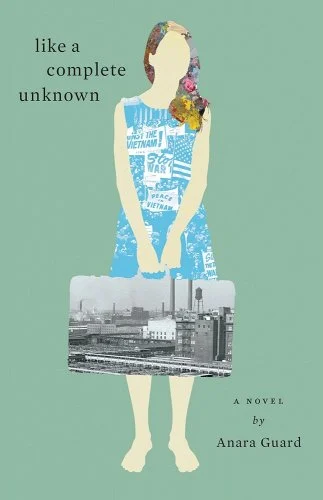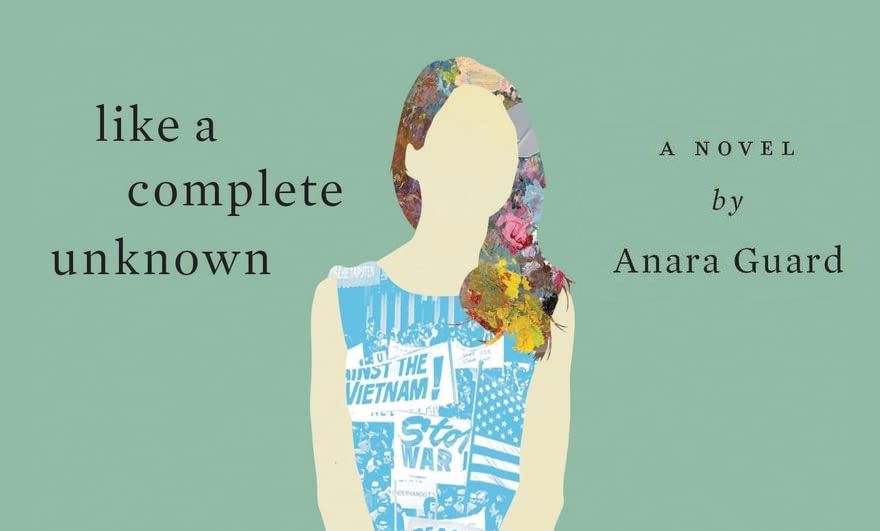What inspired you to write this book?
I grew up at the very edge of the Sixties, too young to participate much but old enough to be a quiet observer. as the years went on, the further we proceeded from “the Sixties,” the more that I saw that era becoming Disneyfied: sanitized and mythologized. Often, it’s portrayed only from the vantage point of the young—but the anti-war movement relied upon the experiences of those who had gone before us. I wanted to convey my sense of that time, set in the gritty city of Chicago, and with older people as well as young ones. So I set out to tell a story in the tumultuous year of 1969-70 that was seen through the viewpoints of two characters: a young teen who brings a starry-eyed naivete to her experiences, and a man past middle-age (which was earlier then than now…) who becomes drawn in to the counter-culture.
How did you come up with the setting for the story?
Chicago is my hometown, although I haven’t lived there in many years. It wasn’t a hippie mecca, as much as a nexus of political organizing. I wanted to re-create the city that I remember, and whenever I went back to visit, I was careful not to go to certain places because they’ve changed so radically that my own memories would be overlaid.
Did you have any challenges while writing this book? If so, what were they?
One challenge was in using slang of the times. It was impossible to convey how we actually spoke without it coming off as absurd or a parody! I had to scale back the use of so many words. Another challenge was in writing a particular scene near the end that I won’t name to avoid spoilers. I feared that I couldn’t convey it in an original way, but a good friend (and writer) convinced me to have a go at it, and I’m glad I did.

Can you tell us about any research you did for this book?
In the acknowledgements, I mention a number of books that were helpful in writing it, including a history of the underground abortion movement, another of a hippie caravan, and a guide to midwifery. I also relied on the online Encyclopedia of Chicago, another site in which men preserved their stories of responding to the draft lottery, and memories of several friends in making sure that I authentically portrayed the lingo of the times.
How did you come up with the title for the book?
The title comes from a Bob Dylan song and each chapter is titled with words that might reference songs of the times. My hope is that some readers will start to hear the tune playing in the back of their minds, while for all readers the title will still make sense and relate to the plot.
What was your favorite part of the editing and revision process?
Did any real-life experiences influence the plot or characters in the book?
I’m often asked whether Katya is a version of me! No—I never ran away from home, nor am I Polish-American. Likewise, I was not a doctor (Robert), waitress (Louise), street youth (Huck), or proprietess of an astrological bookstore (Glorious). But there are many small moments that I personally observed or experienced, such as how Katya is treated at the party she attends. And I was fortunate enough to visit a physician who was nearly as kind and respectful as Robert is.
Can you tell us about any deleted scenes or plotlines that didn’t make it into the final version of the book?
I had more chapters featuring Huck; it was such fun to imagine how he made his way on the streets without ever having a permanent home or legal job. But those scenes, although they may have rounded him out more, didn’t advance the plot much, so I cut them.
Can you give us a hint about what you’re working on next?
All that I can give away right now is that it features two sisters and is set in the 1920s!
How do you hope readers will feel after finishing your book?
I hope that they will feel as this reader—who was kind enough to email me—did, writing:
“I can count on one hand the number of books I’ve read that I desperately did not want to end,
and that left me in a few tears – the good kind – when they did. Yours is one of them. The time,
place, and especially the characters are so very well drawn. I felt immersed into the setting and
deeply cared about Katya and Robert. Lots of interesting, complex and economically drawn
characters, too. So many people to love (and hate) in this book. It’s so rich. The theme of
volition and personal power — over our body, over our identity and passions, and more — is
timeless, but oh so very timely.”
Anara Guard is the author of the novel Like a Complete Unknown as well as a collection of short stories. Her writings have been published in Persimmon Tree, The Ear, Gold Man Review, and elsewhere. A native Chicagoan, she now makes her home in Sacramento.
You can purchase Like A Complete Unknown at NewWindPublishing.com or at Bookshop.org

